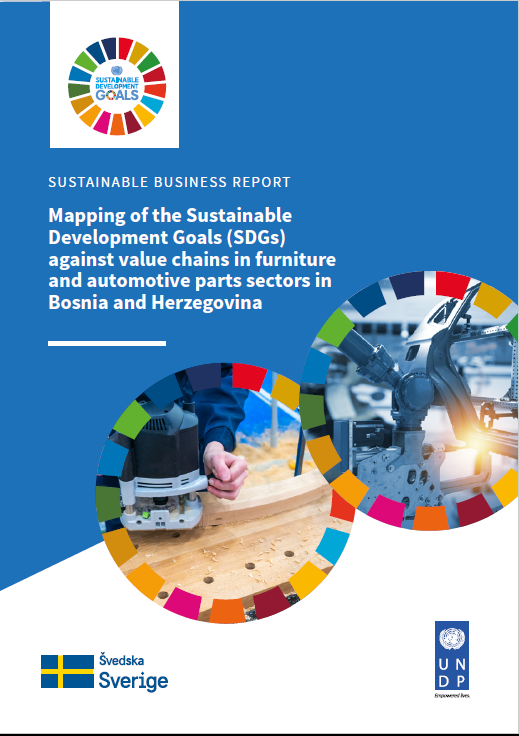
Sustainable Business Report – SDG mapping against value chains in furniture and automotive sectors represents an innovative approach to the identification of SDG indicators in value chains in furniture and automotive sector, that can help measure and track how they impact the SDGs and how SDGs affect individual parts of the selected value chain.
The project contracted Price Waterhouse Coopers to prepare the Sustainable Business Report with the ultimate aim to reduce the gap between current business practices in the target sectors and SDG principles and targets.
The report presents the SDGs with the highest impact on value chain at the sector level, as well as indicators (baselines and targets) to set general and specific goals to reduce the gap between current business practices within target value chains and the SDGs and corresponding targets. Moreover, the report provides an insight into the best sustainability practices in two target sectors, thus allowing the companies to generate long-term growth and prosperity while contributing to their communities and the environment. It needs to be emphasized that the report was developed through a consultative process, using surveys and working directly with relevant companies’ representatives from both sectors and relying on advisory support provided by the SDG Private Sector Working Group.

BiH companies from two targeted sectors should use information presented in this report as a starting point in addressing and aligning their business strategies with the SDGs. In general, the analyses have confirmed that BiH companies still largely lag behind in terms of measuring and reporting on many indicators relevant for the concept of sustainability per se, for example technology, environmental footprints, human capital, etc., which should be regarded as priority, in particular for companies that are primarily export oriented. However, although companies in BiH have not been heavily involved in SDGs reporting and are unlikely to be among the global leaders in this field, the findings in specific segments (number of employees, female employees, education and trainings, R&D etc.) suggest that there is a solid basis for promotion of good practices and individual contributions of companies to the SDGs on daily basis. Nevertheless, the survey and interviews with companies’ representatives from both sectors have shown that the level of their involvement in SDGs practices depends, primarily, on the size and strength of a company, but also on a unique corporate culture influenced by many internal and external factors such as competition, product segment, international standards, locality, and a specific stage of company’s development.
The business indicators presented in the report were identified using the Connectivity Table and Impact Pathway, linking sustainability with financial performance. The identified baseline indicators have been developed based on the survey findings for both sectors, while proposed target indicators represent the expected outcomes based on the identified trends within targeted sectors.
As BiH struggles with a lack of credible and disaggregated data as well as indicators along the development pathway, this report tried to fill this gap by defining a set of business indicators that will be easy to monitor and capture the impact and contribution of companies to the achievement of SDGs in the next period.



